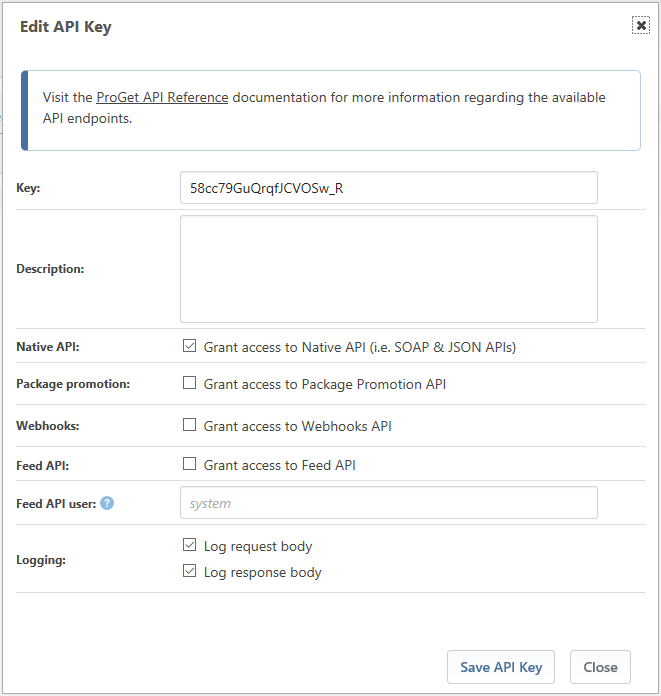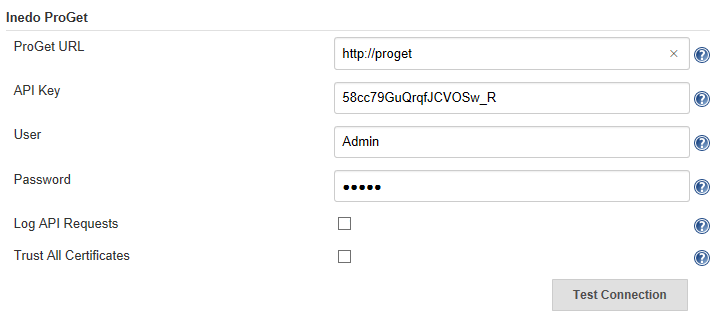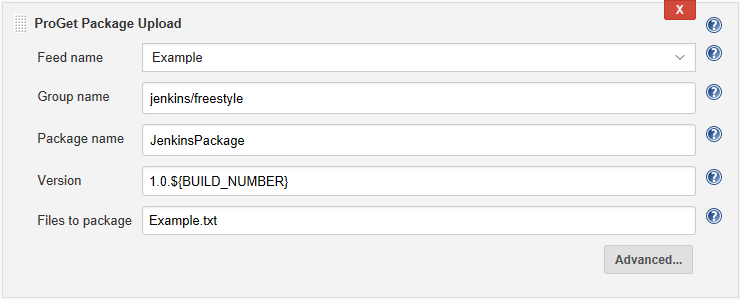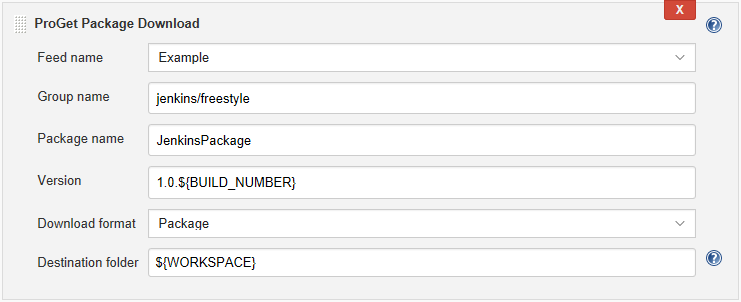This plugin integrates Inedo ProGet with Jenkins allowing Jenkins jobs to create and upload, or download and extract, universal packages.
The plugin requires a minimum ProGet version of 4.0.12 or higher to work correctly.
This plugin can be installed from any Jenkins installation connected to the Internet using the Plugin Manager screen.
To configure the plugin:
First you need to ensure that an api key as been configured in ProGet at ProGet > Administration > API Keys & Access Logs Without this the plugin will still work to a certain point but will have reduced functionality in the job configuration - i.e. you will need to fill in certain details rather than select values from a drop down list, of feeds, groups and packages.
Next, you need to go to Jenkins' system config screen to tell Jenkins where's your ProGet installation resides and the username and password of a user with permission to upload files to ProGet.
Finally, you need to add either an "ProGet Upload Package" or "ProGet Download Package" build step to your Jenkins job.
In it basic form, this simply require specifying the files in your work space that you'd like to package, supplying some metadata that that describes the package and the job is done. Please consult the help text in the plugin configuration screen for more information on each setting.
There are some more advanced options that allow you to tweak the files that will be included in the package and the supply additional metadata.
Downloads a universal ProGet package in the requested format (package, zip, or tgz) to specified folder and will optionally unpack it for you. The environment variable PROGET_FILE will be populated with the name of the downloaded file Please consult the help text in the plugin configuration screen for more information on each setting.
Script can be generated using the pipeline syntax snippet generator.
Scripted Pipeline Example
node {
bat '''
DEL *.TXT /Q
DEL *.upack /Q
ECHO Build Tag: %BUILD_TAG% > Example.txt
'''
uploadProgetPackage artifacts: 'Example.txt', feedName: 'Example', groupName: 'jenkins/pipleline', packageName: 'JenkinsPackage', version: "1.0.${BUILD_NUMBER}"
downloadProgetPackage downloadFolder: "${WORKSPACE}", downloadFormat: 'pkg', feedName: 'Example', groupName: 'jenkins/pipleline', packageName: 'JenkinsPackage', version: "1.0.${BUILD_NUMBER}"
}
Declarative Pipeline Example
pipeline {
agent any
stages {
stage('Main') {
steps {
bat '''
DEL *.TXT /Q
DEL *.upack /Q
ECHO Build Tag: %BUILD_TAG% > Example.txt
'''
uploadProgetPackage artifacts: 'Example.txt', feedName: 'Example', groupName: 'jenkins/pipleline', packageName: 'JenkinsPackage', version: "1.0.${BUILD_NUMBER}"
downloadProgetPackage downloadFolder: "${WORKSPACE}", downloadFormat: 'pkg', feedName: 'Example', groupName: 'jenkins/pipleline', packageName: 'JenkinsPackage', version: "1.0.${BUILD_NUMBER}"
}
}
}
}
Select Create Issue on the JIRA home page and ensure that the component is set to inedo-proget-plugin.
For more information see the Jenkins guide on how to report an issue.






